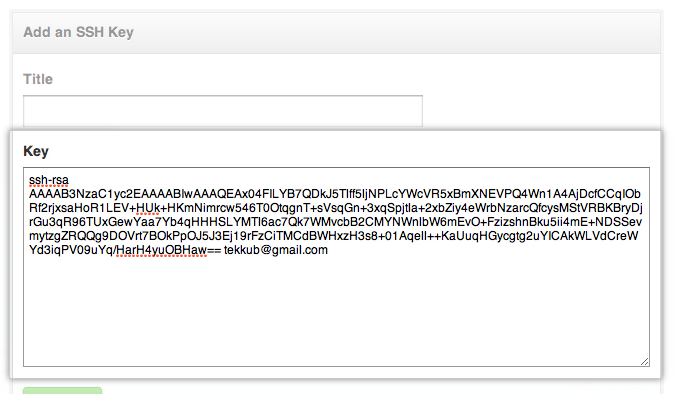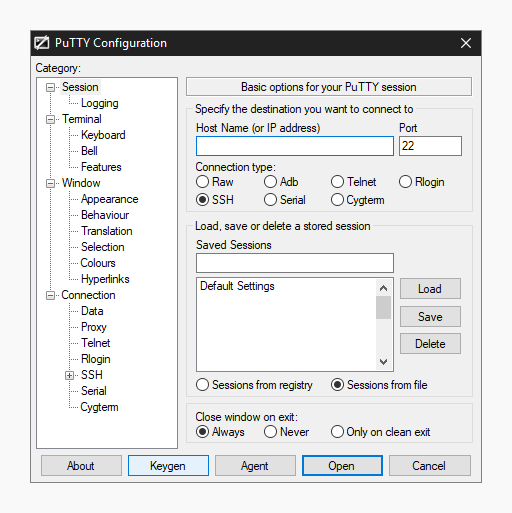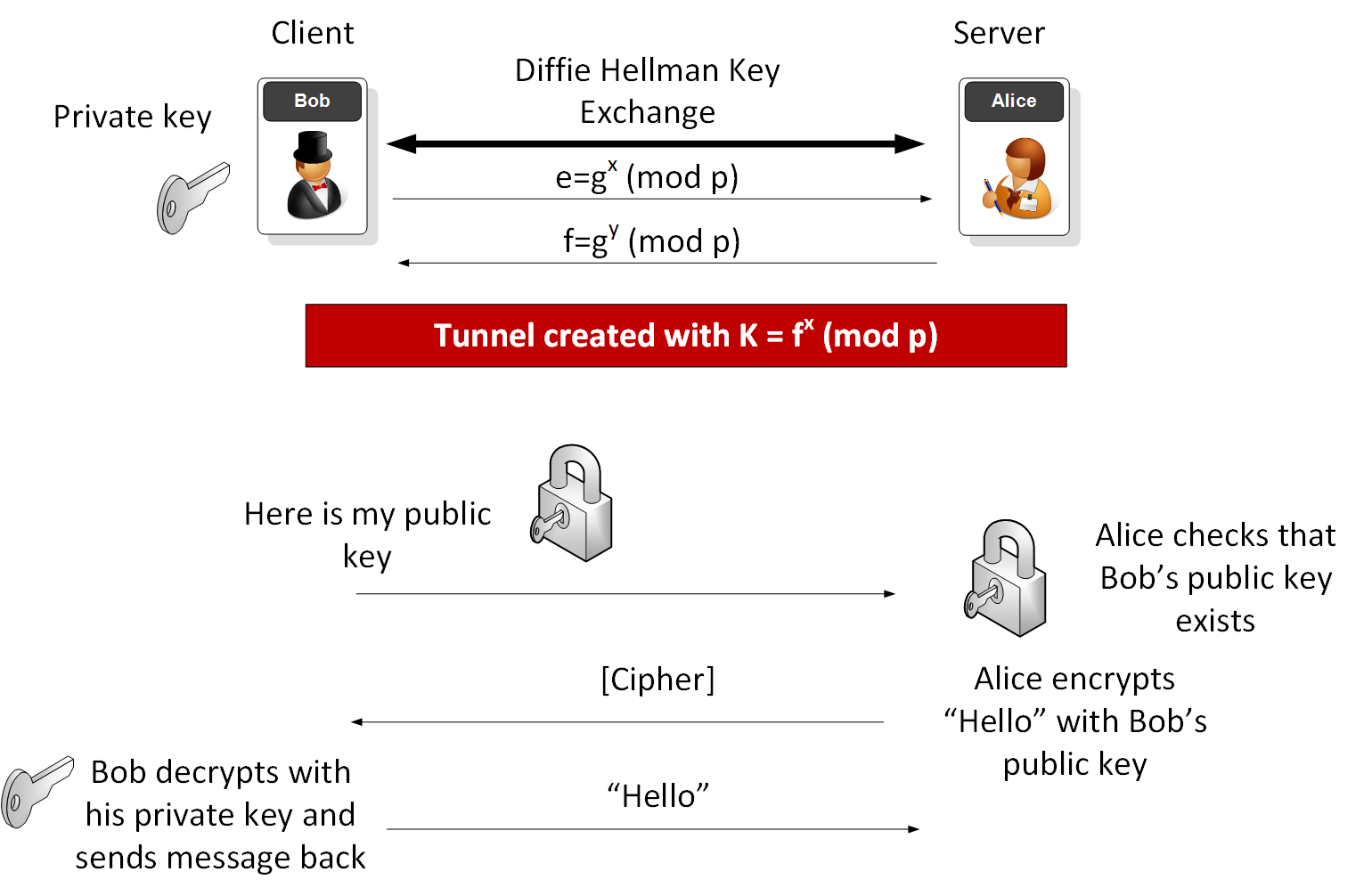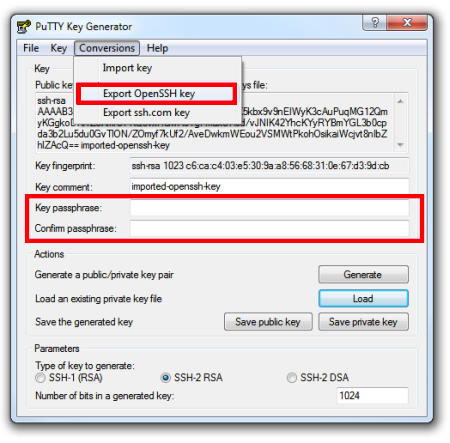This tutorial explains the Passwordless SSH using Public Key and Private Key in Linux.
When a private key is needed the user is asked to supply the passphrase so that the private key can be decrypted. The handling of passphrases can be automated with an SSH agent. In most automated use cases (scripts, applications, etc) the private keys are not protected and careful planning and key management practises need to be excercised to. When generating a key, you'll get two files: idrsa (private key) and idrsa.pub (public key). As their names suggest, the private key should be kept secret and the public key can be published to the public. Public-key authentication works with a public and a private key. Both the client and the server have their own keys. SSH keys are used for password-less authentication from user to user when using the SSH protocol. SSH keys consists of a public/private key pair. You can think of a public/private key pair like this public key is a lock. Private key is the key to that lock. Your lock can be deployed to as many gates as you want.

SSH stands for Secure SHELL, is a protocol used to connect remote hosts to login or performing some tasks using scripts.
When we want to automate some tasks on remote hosts using scripts from a centralized server like Jenkins/Ansible or any Linux Server, we may require a password less connection between the remote hosts and the centralized Server.
In this tutorial, we will learn to create Passwordless SSH login using public key and private key. Follow the step by step guide to make your ssh connection passwordless.
This tutorial will work for Linux Destro such as Centos, Ubuntu, Redhat, Amazon Linux(AWS EC2) and Other as well.
Recommended Read:How to Install Jenkins on Ubuntu
Also Read : Git Tutorial for beginners (Part I)
Scenario
We have one Local Machine and one Remote Server.We will setup a passwordless connection to login Remote Server from the local Machine.
Perform following steps on the remote Server
Step 1– Create an User and login or login as an existing user.
$ useradd devops
$ su – devops
Step 2 – Generate a key pair ( Public key and Private Key) using ssh-keygen command.
Before running this command make sure you are on home directory of the user.If not you can go to the home directory by cd ~ command.
$ cd ~
$ ssh-keygen -t rsa
It will ask for some details. Do not put anything here and press ENTER only.
Ssh Begin Rsa Private Key
By ls -al command you can see a hidden directory .ssh and two files namely id_rsa and id_rsa.pub inside .ssh directory are created.Here id_rsa is the Private key and id_rsa.pub is the Public Key.
Private key(id_rsa) is kept at source computer(local machine) from where you have to ssh. Public Key(id_rsa) is kept at Destination Server(Remote Server) , the Server you want to access.
Step 3- Create a file name authorized_keys in side .ssh directory and copy the content of id_rsa.pub file to authorized_keys file.
Go to .ssh directory
$ cd ~/.ssh/
Create an empty file name authorized_keys
$ touch authorized_keys

Ssh Rsa Private Keys
Copy the content of id_rsa.pub to authorized_keys
$ cat id_rsa.pub > authorized_keys

Check the authorized_keys file if contents are copied.
$cat authorized_keys
Step 4 – Change the permission of authorized_keys
$ chmod 600 authorized_keys

Step 5– Copy the content of id_rsa file
Use cat command to display the content of id_rsa and copy its content.
$ cat id_rsa
On the local Machine
Step 1– Create a file and paste the content of id_rsa copied from remote server inside this file. You can use nano command to perform this action.
Create a file name devops.key using nano command , paste the content and pres Ctrl+X to save and close the file.
$ nano devopys.key
Step 2 – SSH remote Server from local machine without using password.
$ sudo ssh -i path-to-private-key [email protected]
$ sudo ssh -i devops.key [email protected]
I hope you enjoyed this tutorial and learned Passwordless SSH login using public key and private key. If you think this is really helpful, please do share this to other as well. Please also share your valuable feedback, comment or any query in the comment box.I will really happy to resolve your all queries.
Openssh Private Key
Thank You

Ssh Rsa Private Key Finder
If you think we helped you or just want to support us, please consider these:-
Connect to us: Facebook | Twitter
